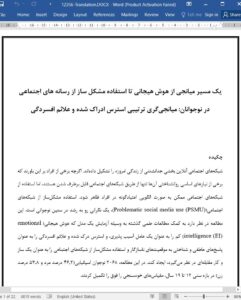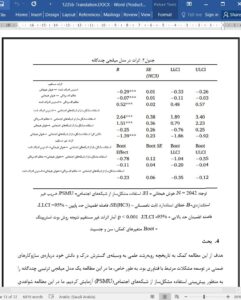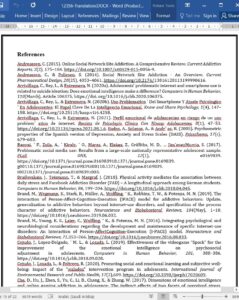Abstract
Online social networking is an intrinsic part of present life. However, if individuals believe that some basic psychological needs can only be fulfilled through social networking sites, an addictive pattern of usage may emerge. Problematic social media use (PSMU) is a growing concern in adolescence. The present study aimed at contributing to prior scientific literature by testing a model that considers low emotional intelligence (EI) as a vulnerability factor, perceived stress and depressive symptoms as affective and cognitive responses to conflicting situations, and PSMU as a maladaptive coping mechanism. In this study, 2068 Spanish adolescents (46.2% male, 53.8% female) within the ages of 12 and 19 (M = 14.61, SD = 1.62) completed self-report measures of the above-mentioned constructs. Results indicated that (a) perceived stress was a significant mediator in the association between EI and PSMU, (b) depressive symptoms were a significant mediator in this link, and (c) a significant serial mediation model was supported, in which lower EI predicted higher perceived stress, which contributed to higher levels of depressive symptoms, thus resulting in higher PSMU. These results provide important empirical evidence suggesting promising pathways towards preventing PSMU in adolescents, such as EI training, teaching stress-reduction techniques and focusing on reducing depressive symptoms.
5. Conclusion
The present study contributes to the growing literature attempting to better understand some of the personal characteristics and negative affective reactions associated with Internet-related problems. Specifically, we provided evidence to suggest that EI exerts an indirect effect on PSMU via perceived stress and depressive symptoms, separately. Furthermore, the most important finding provides empirical support for the I-PACE model for SNS addiction, as our results suggest a significant serial mediation in which decreased EI is associated with higher perceived stress, which contributes to more depressive symptoms, resulting in higher PSMU in adolescents. Therefore, prevention programs for PSMU in youths could target training in EI, teaching stressreduction techniques, and alleviating depressive symptoms.










